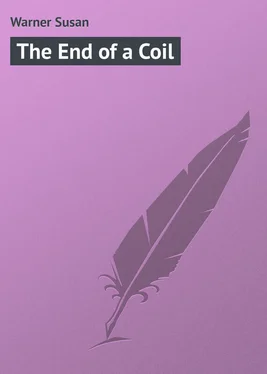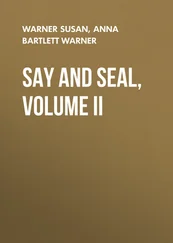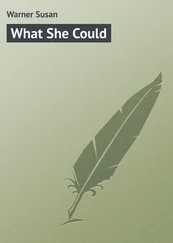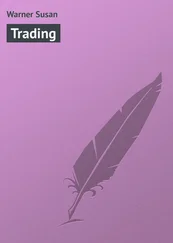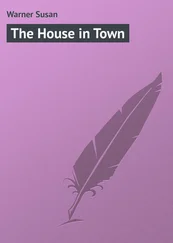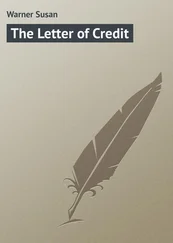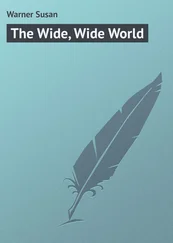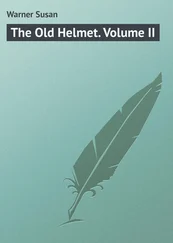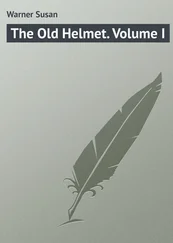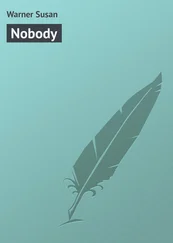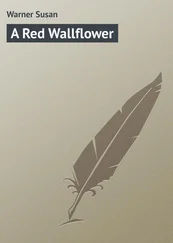Susan Warner - The End of a Coil
Здесь есть возможность читать онлайн «Susan Warner - The End of a Coil» — ознакомительный отрывок электронной книги совершенно бесплатно, а после прочтения отрывка купить полную версию. В некоторых случаях можно слушать аудио, скачать через торрент в формате fb2 и присутствует краткое содержание. Жанр: foreign_prose, foreign_children, на английском языке. Описание произведения, (предисловие) а так же отзывы посетителей доступны на портале библиотеки ЛибКат.
- Название:The End of a Coil
- Автор:
- Жанр:
- Год:неизвестен
- ISBN:нет данных
- Рейтинг книги:4 / 5. Голосов: 1
-
Избранное:Добавить в избранное
- Отзывы:
-
Ваша оценка:
- 80
- 1
- 2
- 3
- 4
- 5
The End of a Coil: краткое содержание, описание и аннотация
Предлагаем к чтению аннотацию, описание, краткое содержание или предисловие (зависит от того, что написал сам автор книги «The End of a Coil»). Если вы не нашли необходимую информацию о книге — напишите в комментариях, мы постараемся отыскать её.
The End of a Coil — читать онлайн ознакомительный отрывок
Ниже представлен текст книги, разбитый по страницам. Система сохранения места последней прочитанной страницы, позволяет с удобством читать онлайн бесплатно книгу «The End of a Coil», без необходимости каждый раз заново искать на чём Вы остановились. Поставьте закладку, и сможете в любой момент перейти на страницу, на которой закончили чтение.
Интервал:
Закладка:
CHAPTER VII
PLAYTHINGS
Dolly did not know that her childhood was over. Every pulse of her happy little heart said the contrary, when she found herself again among her old haunts and was going the rounds of them, the morning after her return home. She came in at last to her mother, flushed and warm.
"Mother, what are we going away for?" she began.
"Your father knows. I don't. Men never know when they are well off."
"Do women?"
"I used to think so."
"Is it as pleasant in England as it is here?"
"Depends on where you are placed, I suppose, and how you are placed. How can I tell? I have never been in England."
"Mother, we have got the prettiest little calf in the barn that you ever saw."
"In the barn! A queer place for a calf to be, it seems to me."
"Yes, because they want to keep it from the cow. Johnson is going to rear it, he says. I am so glad it is not to be killed! It is spotted, mother; all red and white; and so prettily spotted!"
An inarticulate sound from Mrs. Copley, which might mean anything.
"And, mother, I have been getting the eggs. And Johnson has a hen setting. We shall have chickens pretty soon."
"Dolly Copley, how old are you?"
"Sixteen last Christmas, mother."
"And seventeen next Christmas."
"Yes, ma'am, but next Christmas is not come yet."
"Seems to me, it is near enough for you to be something besides a child."
"What's the harm, mother?"
"Harm?" said Mrs. Copley with a sharp accent; "why, when one has a woman's work to do, one had better be a woman to do it. How is a child to fill a woman's place?"
"I have only a child's place to fill, just now," said Dolly merrily. "I have no woman's work to do, mother."
"Yes, you have. You have got to go into society, and play your part in society, and be married by and by; and then you'll know that a woman's part isn't so easy to play."
Dolly looked grave.
"But we are going to England, mother; where we know nobody. I don't see how we are to go into much society."
"Do you suppose," said Mrs. Copley very irately, "that with your father's position his wife and daughter will not be visited and receive invitations? That is the one thing that reconciles me to going. We shall have a very different sort of society from what we have here. Why you will go to court, Dolly; you will be presented; and of course you will see nothing but people of the very best circles."
"I don't care about going to court."
"Why not? You are a goose; you know nothing about it. Why don't you want to go to court? Your father's daughter may, as well as some other people's. Why don't you care about it?"
"It would be a great deal of fuss; and no use."
"No use! Yes, it would; just the use I am telling you. It would introduce you to the best society."
"But I am not going to live in England all my life, mother."
"How do you know?" very sharply. "How do you know where you are going to live?"
"Why, father won't stay there always, will he?"
"I am sure I don't know what your father will take into his head. I may be called to end my days in Japan. But you – Look here; has your aunt made you as old-fashioned as she is herself?"
"How, mother?"
"I am sure I can't tell how! There are ever so many ways. There's the benevolent sort, and there's the devout sort, and there's the puritanical sort. Has she put it into your head that it is good to be a hermit and separate yourself from the rest of the world?"
Dolly laughed and denied that charge.
"She's a very good woman, I suppose; but she is ridiculous," Mrs. Copley went on. "Don't be ridiculous, whatever you are. You can't do any good to anybody by being ridiculous."
"But people may call things ridiculous, that are not ridiculous, mother."
"Don't let them call you ridiculous, then," said Mrs. Copley, chopping her words in the way people do when impatience has the management of them. "You had better not. The world is pretty apt to be right."
Dolly let the subject go, and let it go from her mind too; giving herself to the delights of her chickens, and the calf, and the nests of eggs in the hay mow. More than half the time she was dancing about out of doors; as gay as the daffodils that were just opening, as delicate as the Van Thol tulips that were taking on slender streaks and threads of carmine in their half transparent white petals, as sweet as the white hyacinth that was blooming in Mrs. Copley's window. Within the house Dolly displayed another character, and soon became indispensable to her mother. In all consultations of business, in emergencies of packing, in perplexities of arrangements, Dolly was ready with a sweet, clear common sense, loving hands of skill, and an imperturbable cheerfulness and patience. It was only a few weeks that the confusion lasted; during those weeks Mrs. Copley came to know what sort of a daughter she had. And even Mr. Copley began to divine it.
Mr. Copley has been no more than mentioned. He was a comely, intelligent, active, energetic man; a very good specimen of a typical Yankee who has enjoyed the advantages of education and society. He had plenty of common sense, acute business faculties, and genial manners; and so was generally a popular man among his compeers. His inherited family property made him more than independent; so his business dealings were entered into rather for amusement and to satisfy the inborn Yankee craving to be doing something, than for need or for gain. Mr. Copley laid no special value on money, beyond what went to make him comfortable. But he lacked any feeling for art, which might have made him a collector and connoisseur; he had no love for nature, which might have expended itself in grounds and gardens; he cared little for knowledge, except such as he could forthwith use. What was left to him but business? for he was not of those softly natures which sit down at home in the midst of their families and are content. However, Mr. Copley could value his home belongings, and had an eye to discern things.
He was watching Dolly, one day just before their departure, as she was busying herself with a bunch of violets; putting some of them in a glass, sticking some of them in her mother's hair, finally holding the bunch under her father's nose.
"Dolly," said her father, "I declare I don't know whether you are most of a child or a woman!"
"I suppose I can be both, father; can't I?"
"I don't know about that."
"So I tell her," said Mrs. Copley. "It's all very well as long as she is here; but I tell her she has got to give up being a child and playing with the chickens."
"Why must I?" said Dolly.
"You will find other playthings on the other side," said her father, fondly putting his arm round her and drawing her up to him.
"Will they be as good as chickens? What will they be?"
"Yes, there, 'what will they be,' she asks! I do believe that Dolly has no idea," Mrs. Copley remarked.
"She will find out soon enough," said Mr. Copley contentedly.
"What will they be, father?" Dolly repeated, making for the present a plaything of her father's head; for both her soft arms were around it, and she was touching first one side and then the other side with her own cheeks. Mr. Copley seemed to enjoy the play, for he gave himself up to it luxuriously and made no answer.
"Dolly has been long enough in Philadelphia," Mrs. Copley went on. "It is time she was away."
"So I think."
"Father," said Dolly now, "have I done with going to school?"
There ensued a debate upon this question; Dolly herself taking the negative and her mother the affirmative side. She wanted her daughter at home, she said.
"But not till I am fit to be at home, mother?"
"Fit? Why are you not fit?" said Mrs. Copley. "You know as much as I did when I was married; and I should think that would be enough. I do not see what girls want with so much crammed into their heads, nowadays! It does them no good, and it does nobody else any good."
Читать дальшеИнтервал:
Закладка:
Похожие книги на «The End of a Coil»
Представляем Вашему вниманию похожие книги на «The End of a Coil» списком для выбора. Мы отобрали схожую по названию и смыслу литературу в надежде предоставить читателям больше вариантов отыскать новые, интересные, ещё непрочитанные произведения.
Обсуждение, отзывы о книге «The End of a Coil» и просто собственные мнения читателей. Оставьте ваши комментарии, напишите, что Вы думаете о произведении, его смысле или главных героях. Укажите что конкретно понравилось, а что нет, и почему Вы так считаете.
